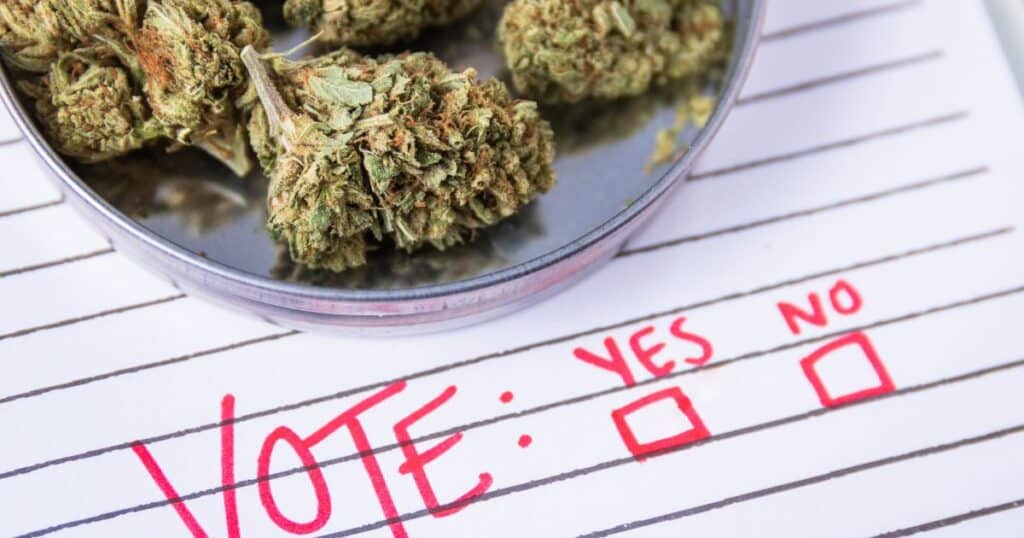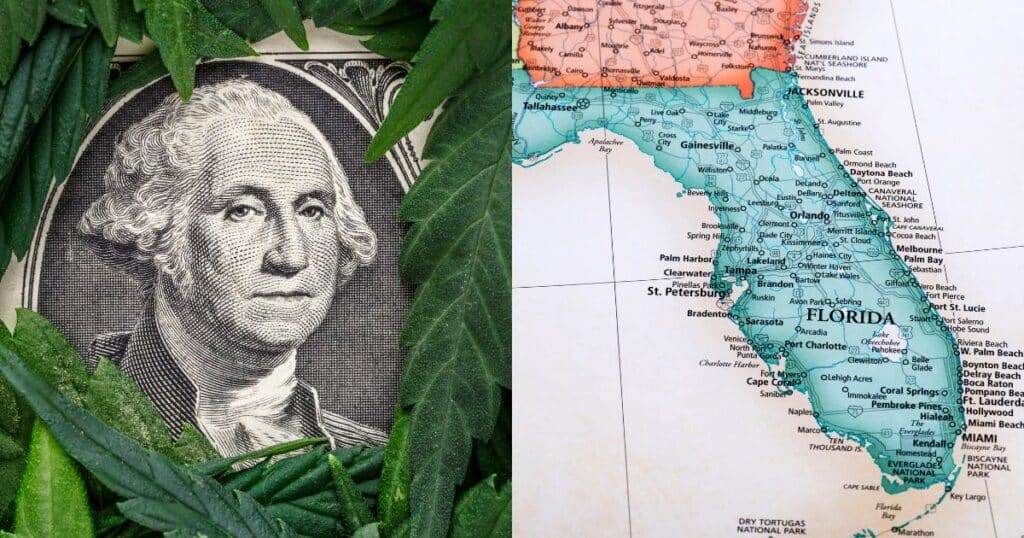Florida- In the Florida cannabis industry, a seismic shift is underway as the state experiences a potential transformation from medical to recreational marijuana use, with an upcoming vote in November.
This isn’t just a cultural leap but a strategic move by companies like Trulieve, a titan in the market, aiming to tap into a massive emerging market. As Florida edges toward the potential legalization of recreational marijuana, Trulieve stands at the forefront, poised to reap significant benefits.

Stagnation of Florida’s Medical Marijuana Market
Recent data reveals a concerning trend for cannabis dispensaries in Florida—the once-rapid influx of new medical marijuana customers is dwindling as outlined by the Tampa Bay Times.
Florida’s pool of registered medical marijuana patients has grown by less than 14,000 people in 2024, according to a Tampa Bay Times analysis of data through early May.
This slowdown poses a critical challenge for the state’s medical marijuana industry, which now hangs in the balance, awaiting the outcome of Amendment 3.
This proposed amendment, championed by the largest cannabis company in Florida Trulieve, with a staggering nearly $50 million contribution towards the Smart & Safe Florida campaign, which seeks to open the state of Florida to recreational use, allowing Floridians aged 21 and over to purchase and possess up to 3 ounces of cannabis.
The implications of such a shift are monumental. Transitioning to recreational sales could catapult Florida, with its tens of millions of annual tourists, into being the “largest legal cannabis market in the world,” as noted by Trulieve CEO Kim Rivers in a filing to the U.S. Securities and Exchange Commission.
However, Rivers claims that Trulieve’s support for the amendment transcends financial motivations in which they would stand to gain if passed in November.
“Our support for adult use in Florida is driven by our conviction that no one should be in jail for small quantities of cannabis for personal consumption, and adults should have the option to buy and consume legal, tested products,” Rivers said.
A Closer Look at the Amendment’s Potential Impact
Should Amendment 3 pass, the immediate beneficiaries would likely be a select few large companies adept at navigating Florida’s stringent cannabis market requirements. Crucially, if passed, there is no provision for issuing new licenses in the state.
It would merely enable the current Medical Marijuana Treatment Centers established in the state to start selling to adults aged 21 and up. This could potentially result in billions in revenue for the already large Multi-State Operators (MSOs).
Critics of the amendment, including Florida Attorney General Ashley Moody, argue that it may further entrench the market dominance of these large entities, potentially stifling competition and innovation.
Yet, supporters like Darren Weiss, President of Verano, argue that there remains untapped potential within the medical marijuana sector, hindered by barriers such as the annual license fee and mandatory doctor visits.
“The medical program as constructed today may be reaching its upper limits but that does not mean the demand is being met,” Weiss said.
Debate Over Recreational Legalization
The push for recreational legalization in Florida is not without its detractors. Critics, including state Rep. Randy Fine, view the move as a calculated long-term strategy by cannabis companies to monopolize the market. Fine draws parallels to the casino industry, where a limited number of operators reap significant profits, often at the community’s expense.
“It’s analogous to the way casinos used to work. You provided a monopoly to a small number of operators, and they would make a ton of money, and it didn’t necessarily benefit the local community,” he said.
Surprisingly, proponents of Amendment 3, like Trulieve’s Kim Rivers, argue that legalizing recreational marijuana will address critical issues such as the fentanyl crisis by providing a safer alternative to illicit market products.
“We know we have a fentanyl problem; it’s being laced regularly with marijuana that’s bought in the illicit market,” Rivers said to NBC6 in April. “This provides a safe alternative for adults 21 and up who do want to consume, and they should be able to do that in a safe environment.”
This stance stands out because cannabis prohibitionists often invoke the fear of cannabis laced with fentanyl to argue against legalization. However, drawing from the example of the state of New York, credible evidence does not support the claim that weed is being laced with fentanyl.

Florida Cannabis Legalization Debate to Heat Up
According to data, the medical marijuana market in Florida is not growing as it once did, signalling a critical juncture for the state’s cannabis industry. This slowdown aligns with the vigorous push for recreational marijuana legalization by Trulieve, the largest cannabis company in the state, which stands to reap substantial financial rewards if Amendment 3 passes.
Given the amendment’s lack of provisions for adding new competition, home-growing, social equity, or expunging cannabis-related records, there is a valid argument that this move could further monopolize the market for already established Multi-State Operators (MSOs), cementing their dominance over the Florida cannabis market.
As the Florida GOP has officially decided to campaign against Amendment 3, the political battle will intensify. Both proponents and opponents of the amendment will ramp up their efforts as the November decision approaches, making it a highly contentious issue that will shape Florida’s future cannabis landscape. One thing is certain: the stakes are high, and the conversation around cannabis legalization in Florida is far from over.

















